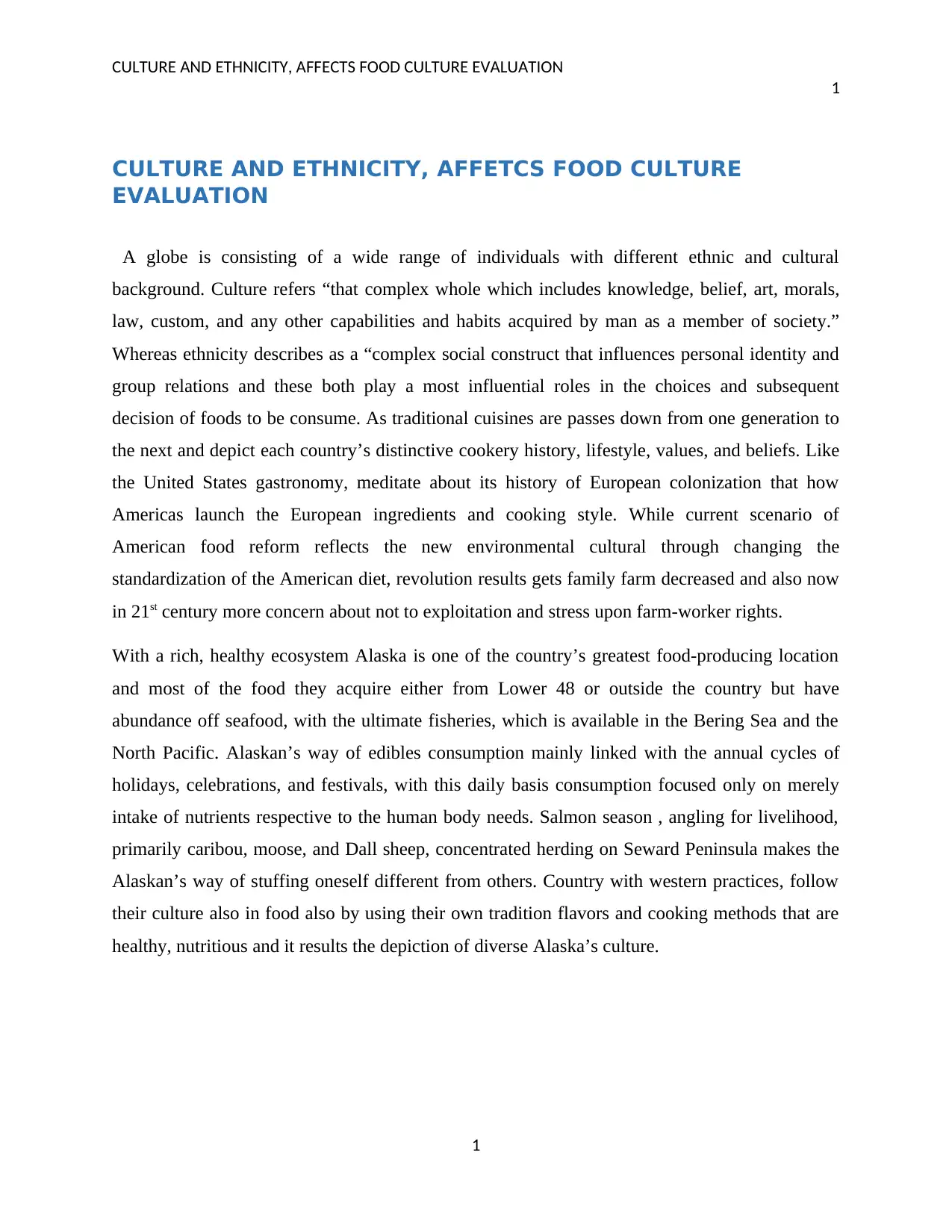Culture and Ethnicity: An Evaluation of Their Impact on Food Culture
VerifiedAdded on 2023/04/04
|3
|340
|452
Essay
AI Summary
This essay examines the significant roles that culture and ethnicity play in shaping food choices and consumption patterns globally. It defines culture as a complex whole encompassing knowledge, beliefs, arts, morals, laws, and customs, while ethnicity is described as a social construct influencing personal identity and group relations. Traditional cuisines passed down through generations reflect a country's history, lifestyle, values, and beliefs. The essay highlights the evolution of American gastronomy, influenced by European colonization and modern environmental concerns, and explores Alaska's unique food culture tied to annual cycles and local resources like seafood and game. It emphasizes how different cultures integrate traditions and flavors into their cooking methods, promoting healthy and nutritious eating habits that reflect their diverse cultural identities. Desklib offers a platform to explore similar content and enhance learning.
1 out of 3










![[object Object]](/_next/static/media/star-bottom.7253800d.svg)